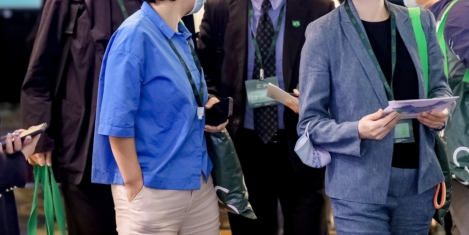To provide the best experiences, we use technologies like cookies to store and/or access device information. Consenting to these technologies will allow us to process data such as browsing behaviour or unique IDs on this site. Not consenting or withdrawing consent, may adversely affect certain features and functions.
The technical storage or access is strictly necessary for the legitimate purpose of enabling the use of a specific service explicitly requested by the subscriber or user, or for the sole purpose of carrying out the transmission of a communication over an electronic communications network.
The technical storage or access is necessary for the legitimate purpose of storing preferences that are not requested by the subscriber or user.
The technical storage or access that is used exclusively for statistical purposes.
The technical storage or access that is used exclusively for anonymous statistical purposes. Without a subpoena, voluntary compliance on the part of your Internet Service Provider, or additional records from a third party, information stored or retrieved for this purpose alone cannot usually be used to identify you.
The technical storage or access is required to create user profiles to send advertising, or to track the user on a website or across several websites for similar marketing purposes.
 More than half of all business leaders (55 percent) believe that the overall economic conditions in the UK and Ireland have worsened compared to a year ago. Yet, 58 percent of SMEs anticipate an increase in their firm’s sales revenues over the next 12 months; while nearly half (47 percent) expect profitability to improve within a year and 47 percent of SMEs are confident that their firm’s total number of employees will grow in the next 12 months. Business leaders are planning to invest more in AI and acquisitions to help them navigate an uncertain future. (more…)
More than half of all business leaders (55 percent) believe that the overall economic conditions in the UK and Ireland have worsened compared to a year ago. Yet, 58 percent of SMEs anticipate an increase in their firm’s sales revenues over the next 12 months; while nearly half (47 percent) expect profitability to improve within a year and 47 percent of SMEs are confident that their firm’s total number of employees will grow in the next 12 months. Business leaders are planning to invest more in AI and acquisitions to help them navigate an uncertain future. (more…)




































July 31, 2023
Digital nomads are starting to price out local communities around the world
by Dave Cook • Cities, Comment, Flexible working